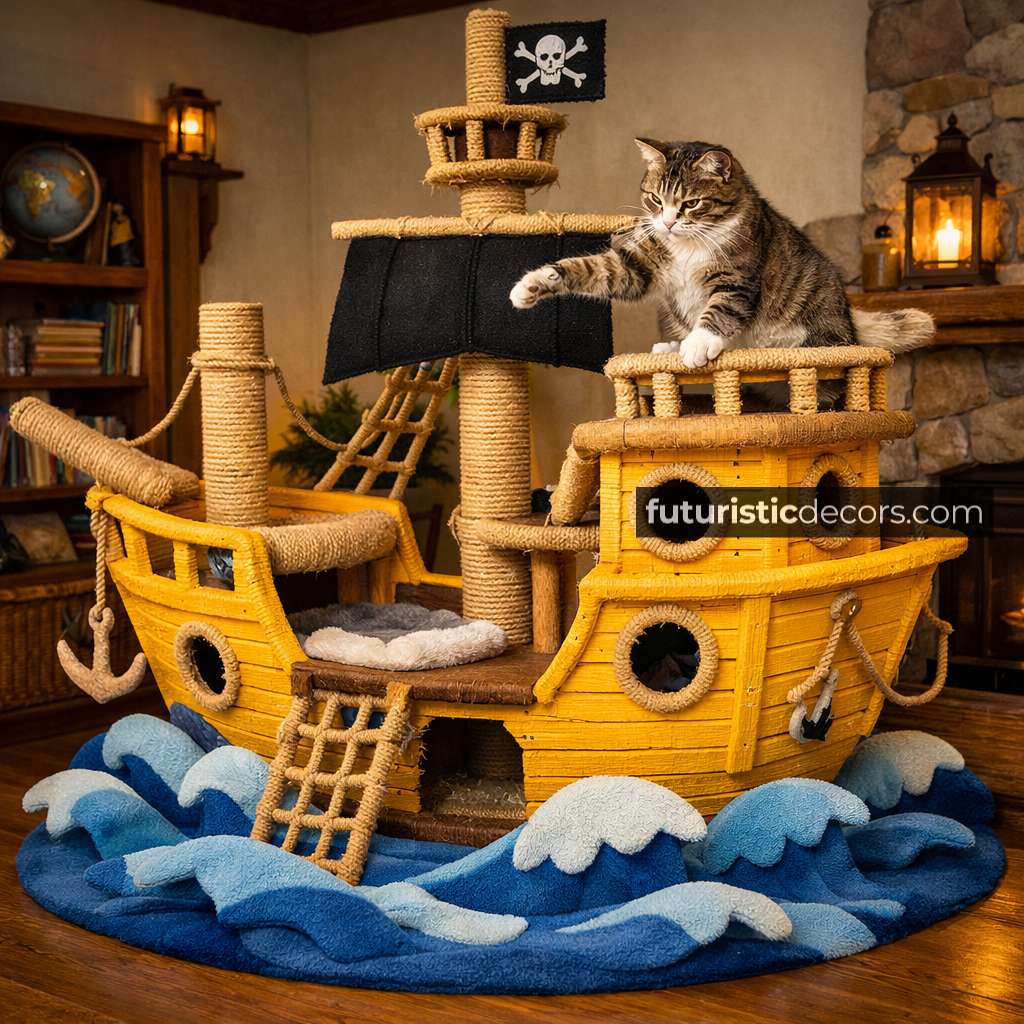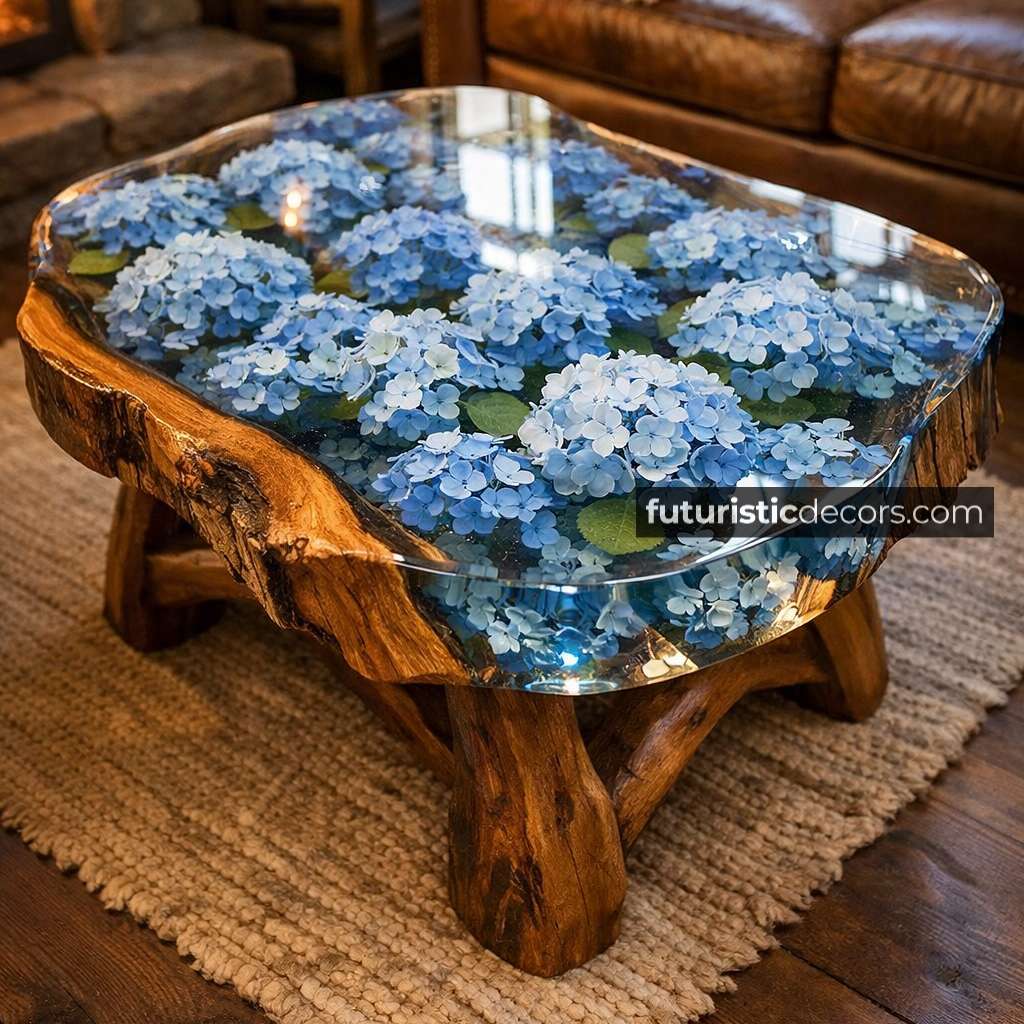Driftwood has long captivated garden enthusiasts with its organic textures, weathered hues, and infinite possibilities. Whether gracefully propped against a fence, woven into a trellis, or artfully suspended as a sculptural centerpiece, driftwood instantly transforms any outdoor space into a sanctuary that feels both timeless and deeply connected to nature. In this article, we explore Best Driftwood Garden Art ideas that will inspire your next landscaping project, delight your visitors, and bring an authentic, coastal charm to your backyard retreat.
From simple DIY accents to elaborate statement pieces, each design harnesses the natural beauty of driftwood—wood that has been smoothed and shaped by wind, water, and time. Its unique contours and patina make every piece one-of-a-kind, ensuring that your garden art remains exclusive. More than just decoration, driftwood art often serves functional roles: planters cradle blooming flowers, trellises support climbing vines, and birdhouses provide welcoming perches for feathered friends. Ready to infuse your garden with rustic elegance? Let’s dive into the fundamentals of sourcing, preparing, and creating driftwood masterpieces that you’ll cherish for seasons to come.
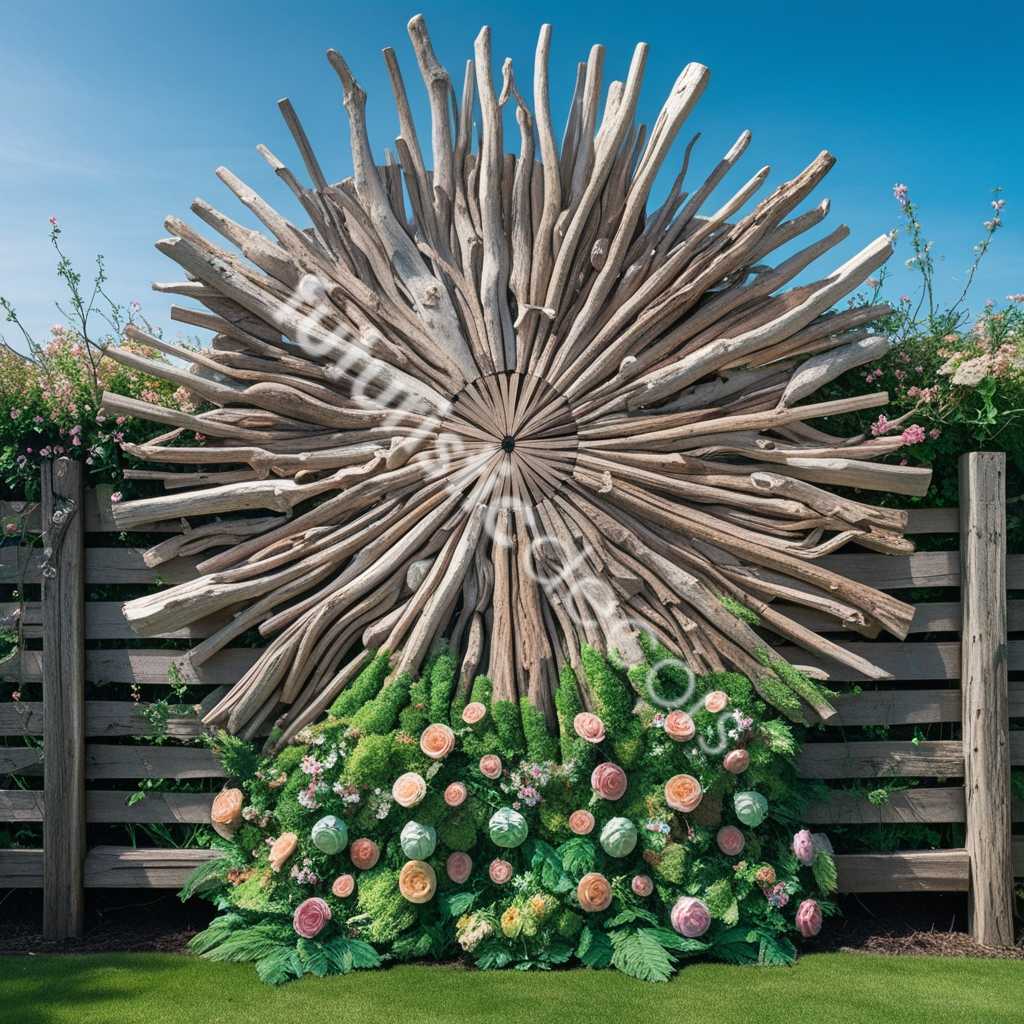
By the end of this guide, you’ll have nine detailed project ideas, practical tips for crafting and maintaining your pieces, and insight into why best driftwood garden art continues to be one of the most beloved trends among green thumbs, designers, and outdoor living aficionados. Roll up your sleeves, gather your materials, and prepare to fall in love with the raw allure of driftwood like never before.
Understanding Best Driftwood Garden Art
Driftwood begins its journey as fallen tree limbs or washed-up timber, carried downstream by rivers or tumbled along ocean shores. As it travels, it loses bark, sheds knots, and absorbs unique mineral deposits, resulting in surfaces that range from silvery gray to deep charcoal. This natural weathering process gives driftwood its signature aesthetic—an earthy palette and sculptural silhouette that no store-bought piece can replicate.
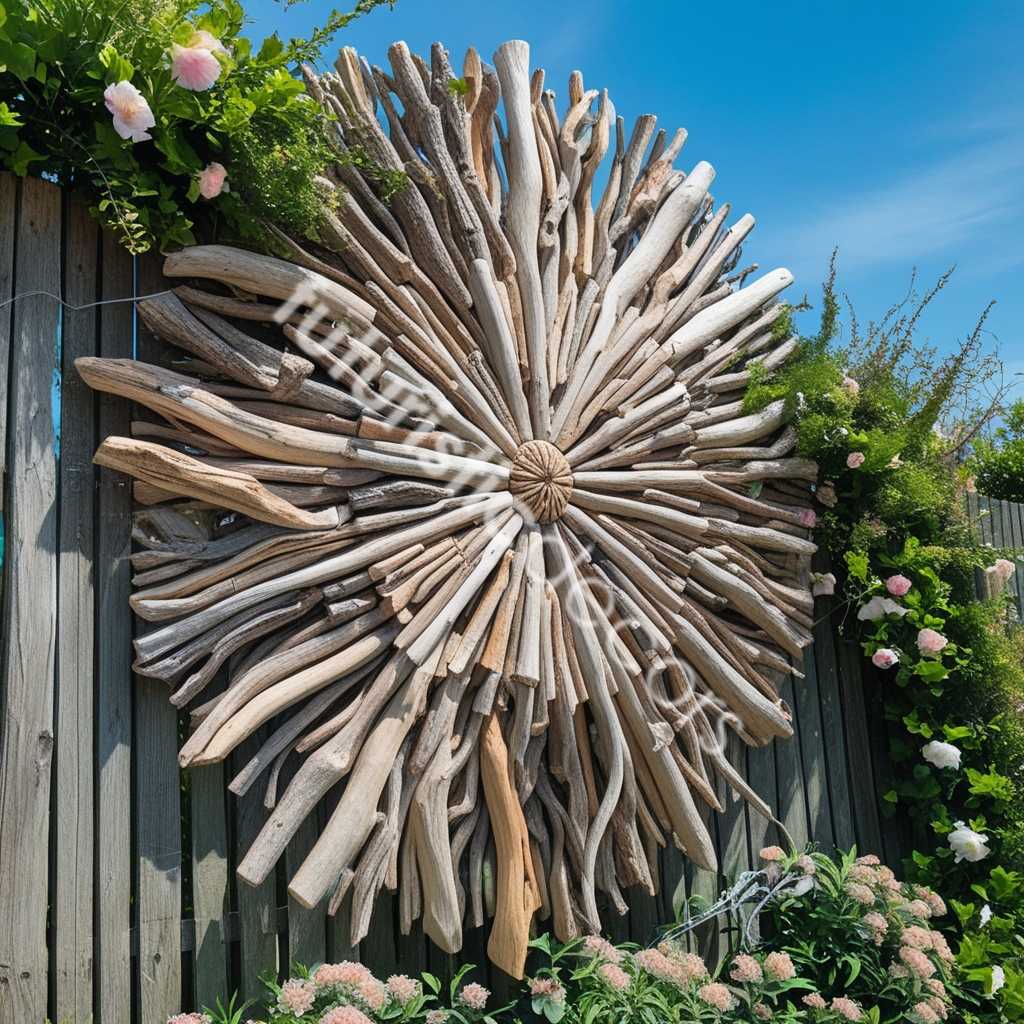
Garden artists prize driftwood not only for its appearance but also for its remarkable durability. Properly cured and sealed, driftwood resists decay and pests far longer than raw timber, making it ideal for outdoor installations. Moreover, every fragment tells a story of its voyage: the gentle curves may hint at ocean currents, while smooth indentations reveal the relentless polishing of sand and stone. When you place driftwood in your landscape, you’re celebrating both its past odyssey and its role as a living participant in your garden’s ecosystem.
Beyond its visual appeal, driftwood garden art can be deeply sustainable. By upcycling fallen wood rather than purchasing freshly cut materials, gardeners reduce waste and honor natural cycles. Many artists also pair driftwood with reclaimed metals, stones, or glass, weaving together disparate elements into cohesive, eco-friendly installations. Whether you prefer minimal, Zen-inspired designs or bold, statement-making sculptures, driftwood offers an endlessly adaptable medium.
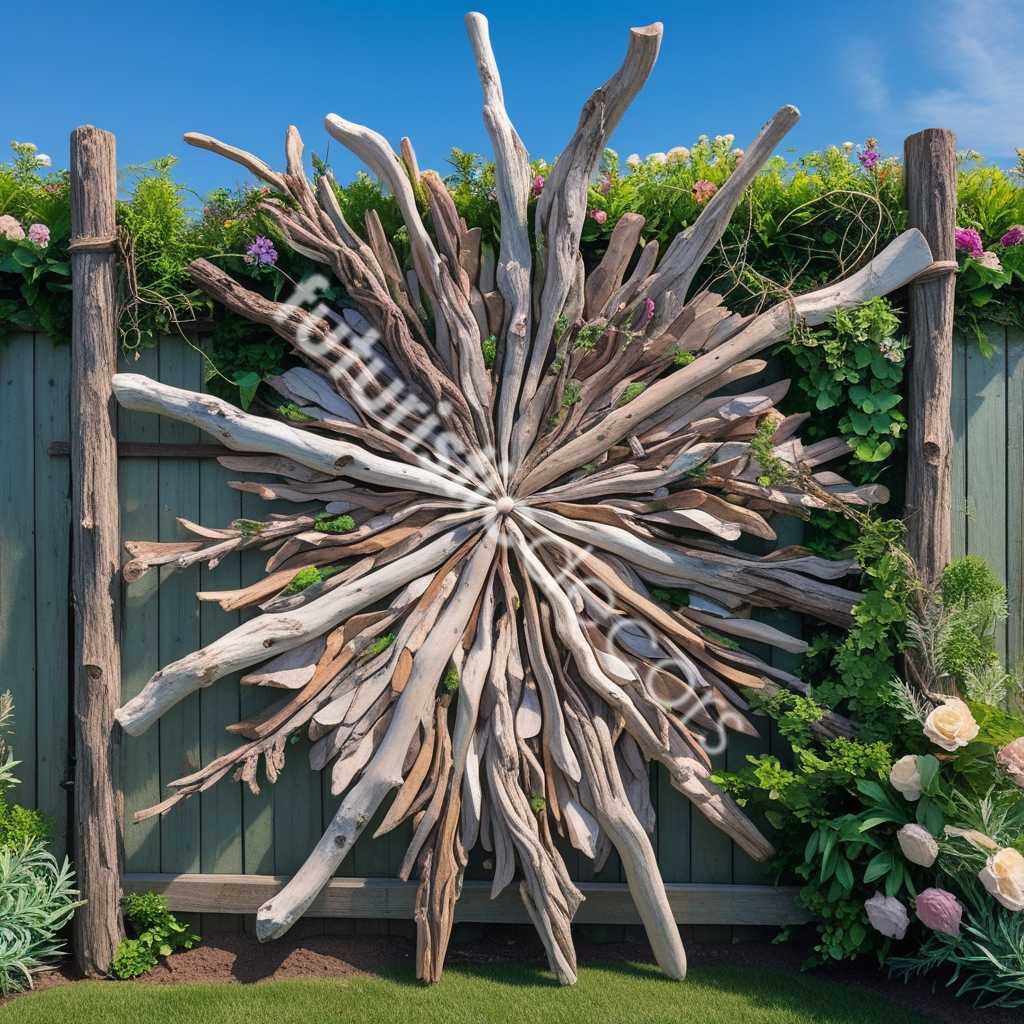
Benefits of Incorporating Driftwood into Garden Decor
- Natural Aesthetic & Texture
Driftwood introduces organic lines and tactile surfaces that contrast beautifully with manicured lawns and structured hedges. Its irregular shape invites the eye to wander, encouraging a sense of discovery as visitors stroll through your garden pathways. - Eco-Friendly & Sustainable
Harvesting driftwood supports environmental stewardship by reusing materials that have already completed their tenure in natural waterways. This practice reduces demand for freshly milled timber and helps prevent unnecessary deforestation. - Low Maintenance & Longevity
Once properly treated—typically with a light sanding, cleaning, and sealant coat—driftwood requires minimal upkeep. Rain and sun continue to accentuate its patina, while occasional re-sealing preserves its integrity against moisture and UV damage. - Versatility in Function
From planters to bird feeders and trellises to light fixtures, driftwood can serve both decorative and practical purposes. Its inherent strength and stability allow you to anchor climbing plants, hang lanterns, or craft outdoor furniture pieces that stand the test of time. - Unique, One-of-a-Kind Pieces
No two driftwood fragments are identical. When you incorporate these naturally sculpted forms into your garden, you guarantee that your design remains exclusive—an authentic reflection of nature’s artistry.
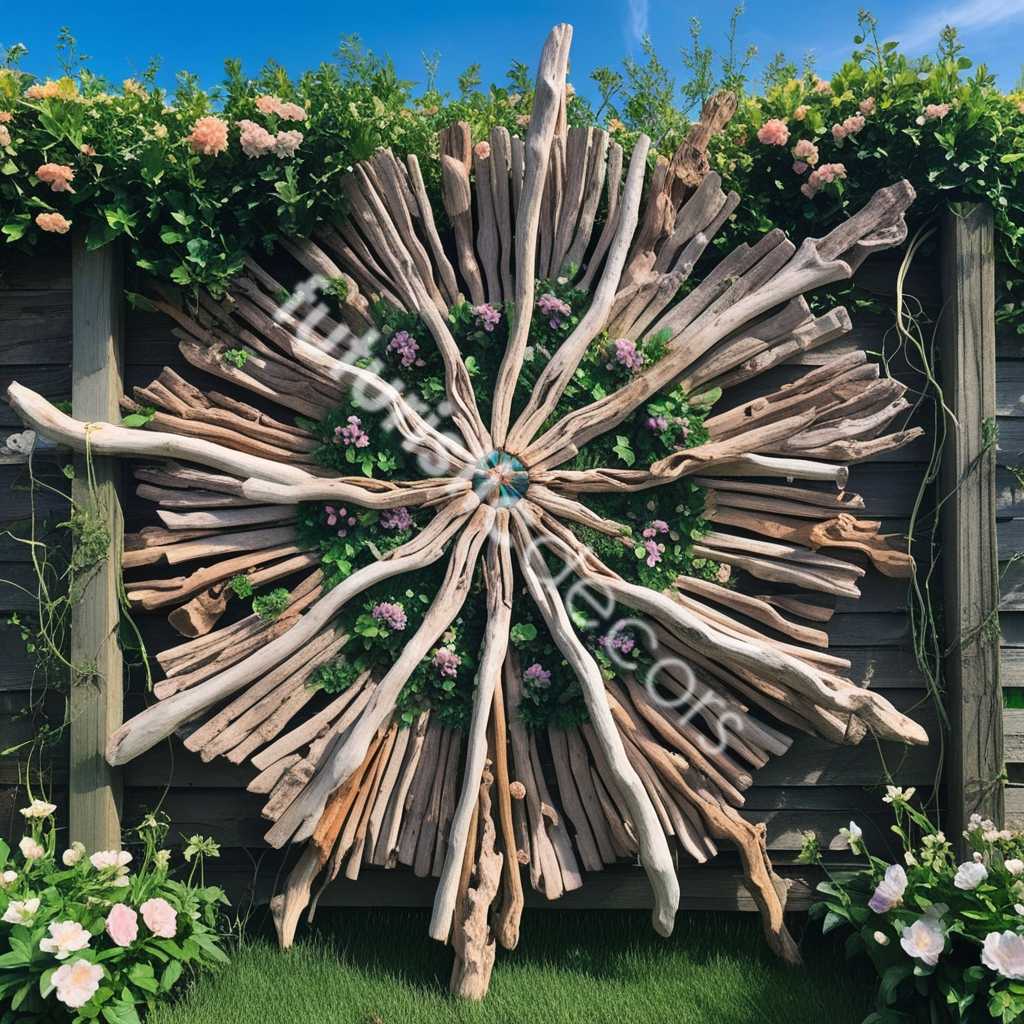
Sourcing and Preparing Driftwood: Best Driftwood Garden Art
Where to Find Quality Driftwood
- Local Beaches & Riverbanks
Coastal shores and riverbanks often yield the freshest, most varied pieces. Early mornings or low-tide excursions can uncover larger logs and intricately shaped branches. - Reclaimed Wood Yards
Salvage and reclamation centers sometimes carry driftwood removed from docks or erosion control projects. These sources may offer already-cured wood at reasonable prices. - Online Marketplaces & Artisans
For rare species or specific sizes, consider purchasing from specialized artisans who clean, sort, and ship driftwood directly to your door. Though pricier, this option saves time and ensures quality.
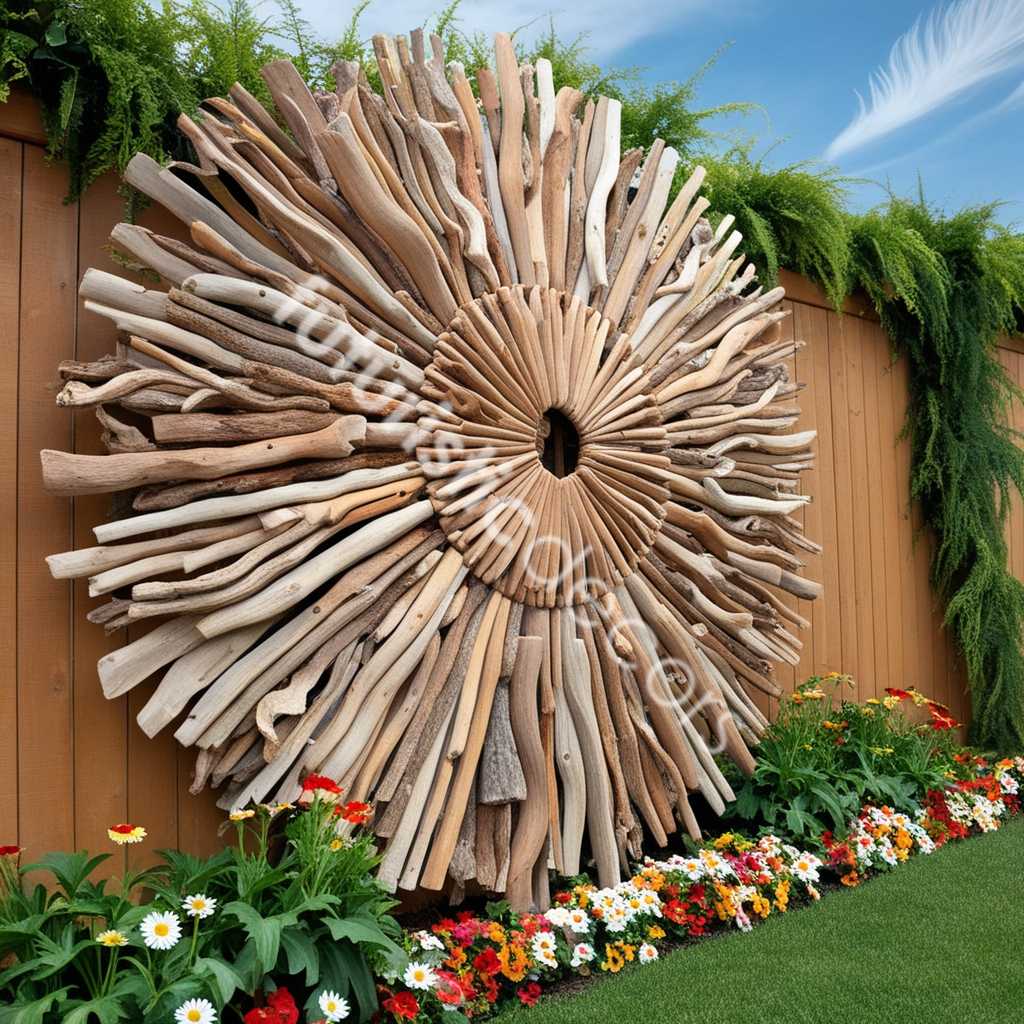
Essential Preparation Steps
- Cleaning & Disinfecting
Scrub each piece with a stiff brush and a solution of mild detergent or diluted bleach (1:9 bleach-to-water ratio). This removes salt deposits, algae, mold, and any lingering pests. Rinse thoroughly and allow to dry completely—ideally in full sun for several days. - Sanding & Smoothing
Lightly sand protruding splinters or rough patches with medium-grit sandpaper. Preserve the natural curves and indentations while preventing painful snags during handling or installation. - Curing & Sealing
Apply a clear, outdoor-grade sealant—such as water-based polyurethane or spar varnish—to protect against moisture and UV rays. Two thin coats, with light sanding in between, ensure penetration into pores without obscuring the wood’s texture. - Hardware & Fasteners
Use stainless steel or galvanized screws, hooks, and eyelets to attach hardware. These materials resist rust and corrosion, maintaining both aesthetic appeal and structural integrity over time.
9 Best Driftwood Garden Art Ideas You’ll Love
1. Driftwood Sculpture “Garden Sentinel”
Craft an upright, abstract sculpture from vertically arranged driftwood branches. Anchor the tallest piece deep into the soil or a concrete base, then fan out smaller branches around it. This sentinel-like form serves as a dramatic focal point, casting intriguing shadows at dawn and dusk.
Materials & Tools:
A selection of straight and curved branches, stainless steel brackets, outdoor epoxy, power drill.
Installation Tips:
Position on a raised mound or within a circular bed to highlight its silhouette. Surround it with low-growing groundcover for contrast.
2. Floating Driftwood Planters
Suspend driftwood troughs horizontally using clear nylon cables. Line the top surface with moisture-retentive soil and plant trailing vines (like sweet potato vine or creeping Jenny) to cascade down the wood contours.
Materials & Tools:
Flat driftwood planks, marine-grade cable, eye hooks, coconut coir liner, potting mix.
Design Advice:
Vary cable lengths to create a tiered effect. Install near seating areas so greenery brushes gently against guests.
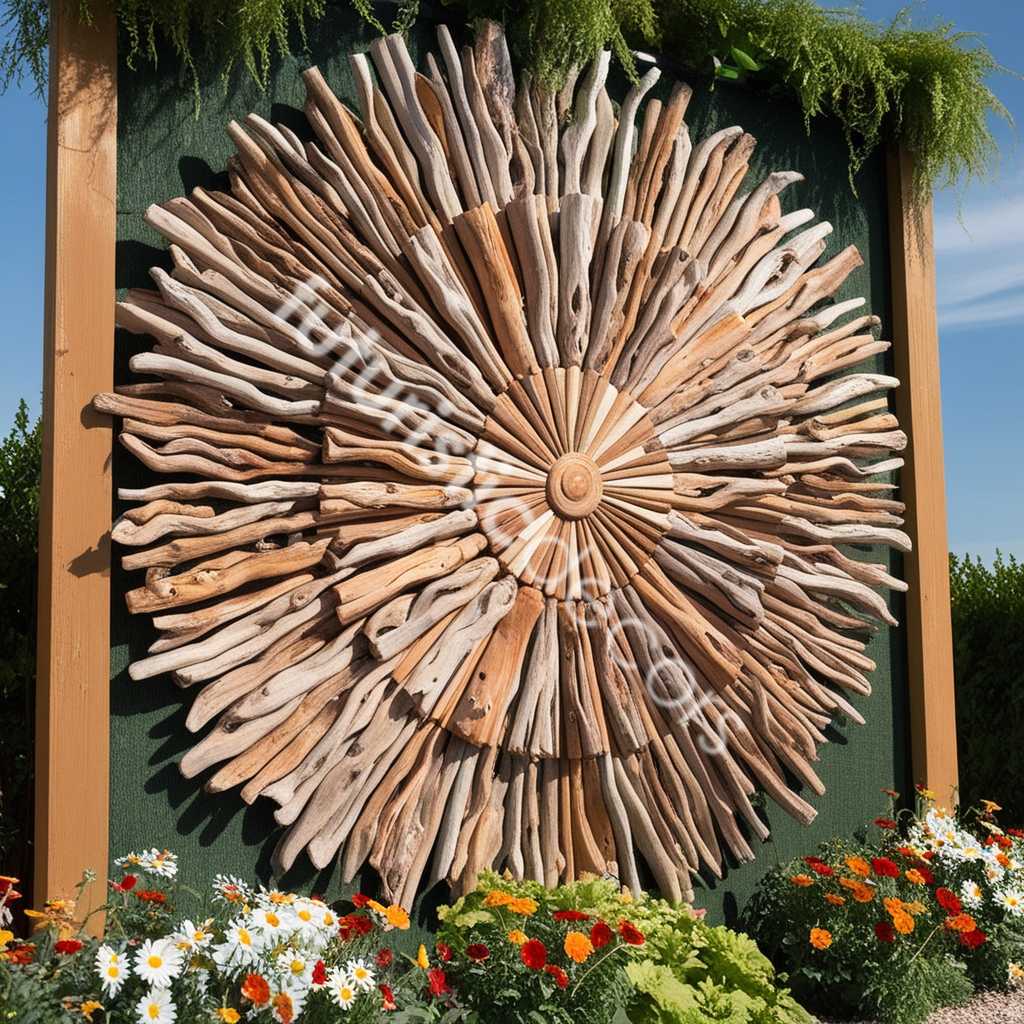
3. Driftwood Arched Trellis
Form a gentle arch from paired driftwood poles, lash the apex with jute twine, and weave horizontal cross-members to create a climbing structure. This trellis provides support for roses, clematis, or morning glories, blending functionality with rustic charm.
Materials & Tools:
Long driftwood poles, natural fiber rope or twine, drill for pilot holes, garden stakes.
Maintenance Note:
Inspect rope connections annually and re-tighten or replace degraded sections.
4. Driftwood Wind Chimes
String together slender driftwood pieces of various lengths with fishing line or twine. Add recycled metal, sea glass, or wooden beads between segments to introduce color and tonal variety.
Materials & Tools:
Branch segments, smooth driftwood dowels, fishing line, small metal washers, sea glass.
Sound Tip:
Experiment with spacing and bead combinations to tune a soft, melodic chime that resonates gently in the breeze.
Refer to buy similar products: Click here
5. Driftwood Garden Bench
Fasten several robust driftwood logs horizontally atop a simple iron frame or sturdy wooden legs. The bench back can consist of vertically aligned thinner branches for an organic lattice effect.
Materials & Tools:
Wider driftwood logs, sturdy legs or bench frame, outdoor-grade wood glue, screws.
Comfort Enhancement:
Add weather-resistant cushions in neutral tones to soften the seating area while maintaining a natural aesthetic.
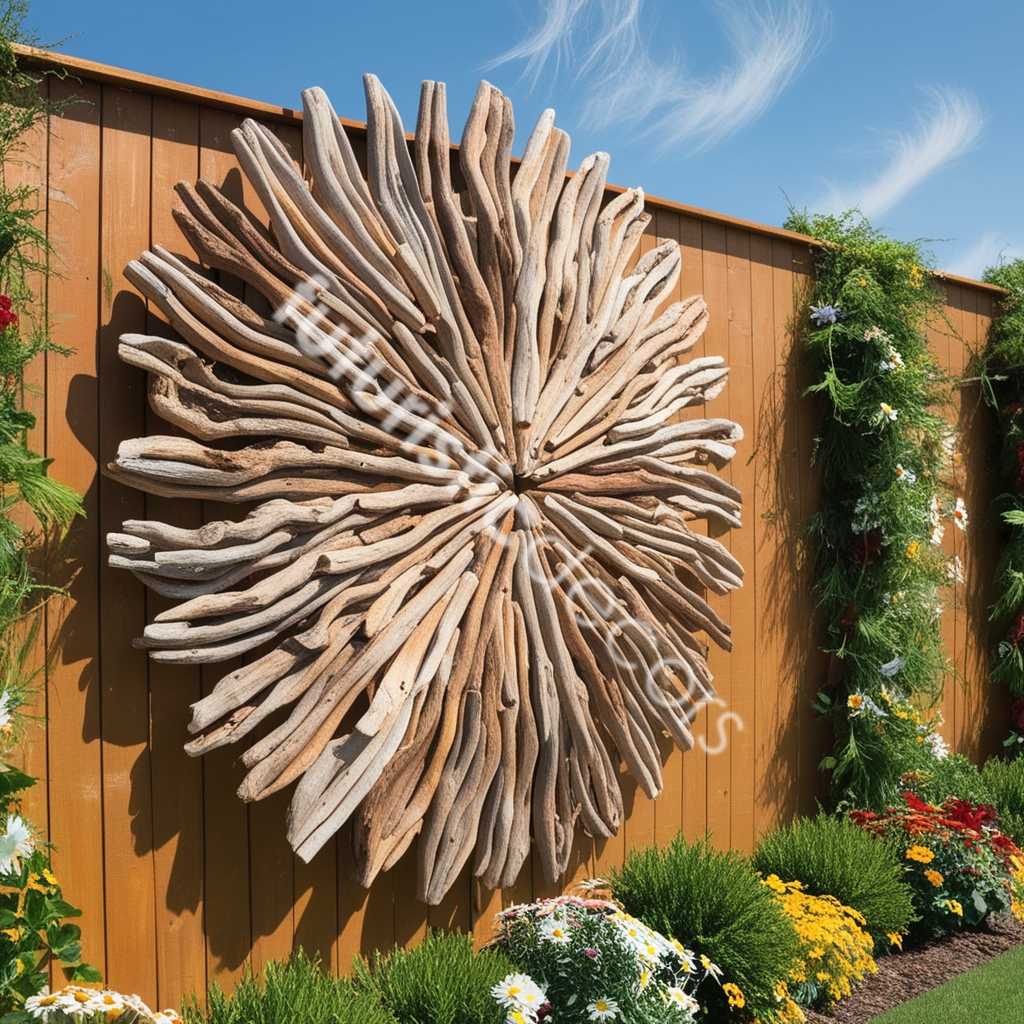
6. Driftwood Fairy House Village
Assemble miniature driftwood cabins on a raised ledger board or potted mound. Incorporate small stones for pathways, moss for turf, and miniature accessories (tiny ceramic mushrooms, glass bead “windows”) to delight children and guests alike.
Materials & Tools:
Small driftwood pieces, craft glue, moss sheets, miniature décor elements.
Placement Advice:
Ideal within a shaded corner bed or nestled among hostas for an enchanting, mystical touch.
7. Driftwood Lantern Holders
Attach metal lantern hooks to thick, horizontal driftwood rods affixed between two upright posts. Hang battery-operated lanterns or mason jar lights to create a warm glow along garden paths or around a patio.
Materials & Tools:
Driftwood rods, metal S-hooks, lanterns or jars, LED candles.
Safety Note:
Opt for flameless LED lights to avoid fire hazards and frequent replacement.
8. Driftwood Bird Feeders & Baths
Hollow out shallow depressions in larger driftwood chunks to serve as natural bird baths. For feeders, suspend driftwood platforms with integrated dish trays beneath, then fill with seed. These installations attract songbirds while blending seamlessly with the landscape.
Materials & Tools:
Flat driftwood slabs, waterproof sealant, rope, shallow stone or ceramic dishes.
Wildlife Tip:
Place near shrubs or low branches to offer birds quick escape routes from predators.
9. Driftwood Garden Signage
Craft custom garden signs by affixing painted wooden letters to a driftwood plank. Use bright, weather-resistant paint for legibility, then mount the plank on fence posts or embed directly in the soil.
Materials & Tools:
Driftwood planks, pre-painted wooden letters, outdoor adhesive.
Creative Twist:
Spell out plant names, whimsical quotes (“Welcome to Driftwood Cove”), or directional markers to different garden zones.
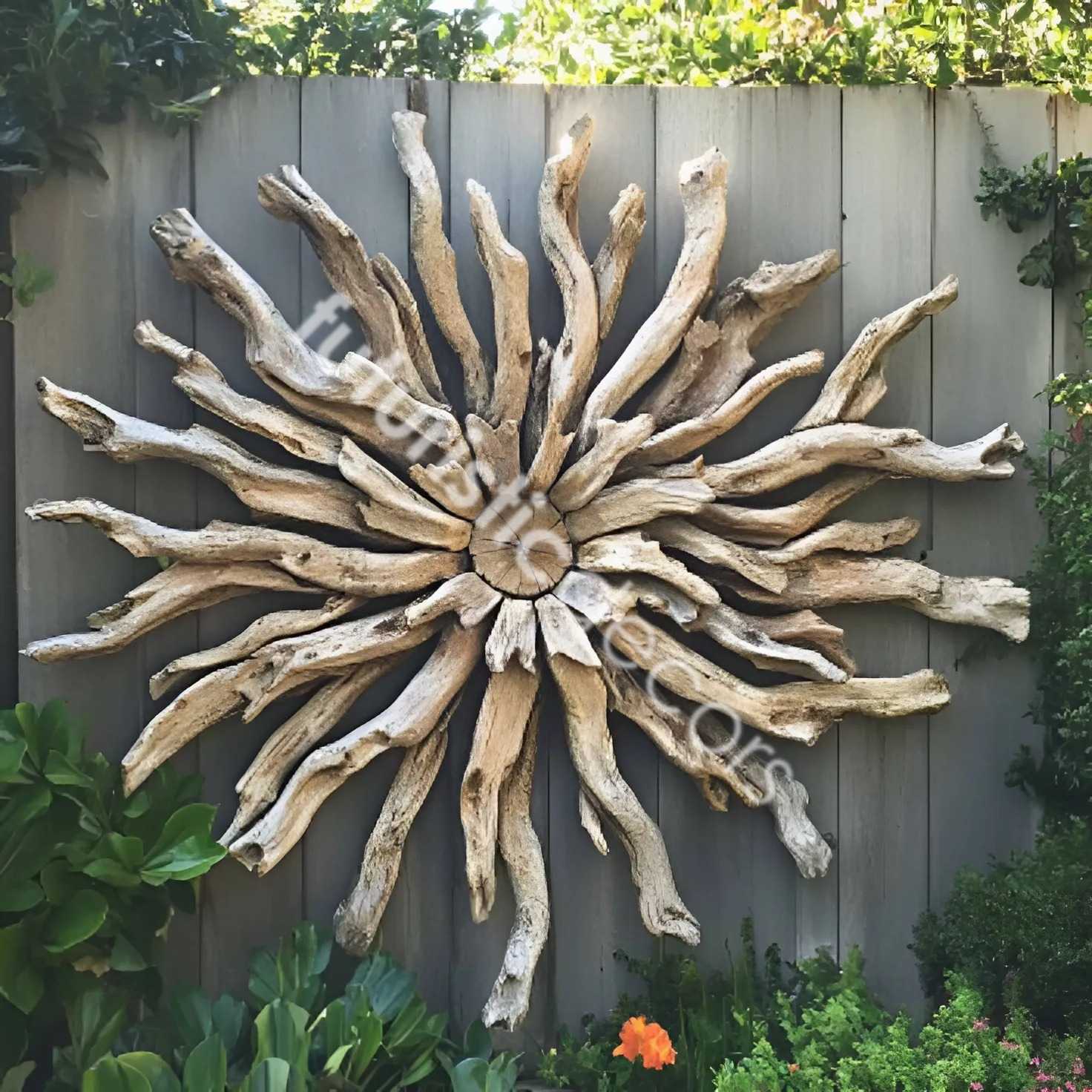
Tips for Creating Your Own Best Driftwood Garden Art
- Sketch & Plan Before You Start
Lay out your driftwood pieces on the ground and experiment with arrangements. Photograph each layout from multiple angles to evaluate balance and flow. - Embrace Natural Irregularities
Rather than trimming driftwood to uniform shapes, highlight its original contours. These irregularities impart character and prevent your piece from looking too manufactured. - Use Appropriate Fasteners
Always opt for stainless steel, galvanized, or brass hardware. Ordinary nails and screws will rust, leaving unsightly stains and compromising structural integrity. - Combine Textures & Materials
Pair driftwood with smooth pebbles, glossy ceramic planters, or woven textiles. Contrasting elements elevate the rustic driftwood and introduce visual interest. - Scale According to Space
A sprawling driftwood sculpture can overwhelm a small courtyard, while diminutive chimes will vanish in vast meadows. Match your project’s size to the garden’s footprint for cohesion. - Involve the Community
Host a driftwood-gathering day with friends or neighborhood groups. Share stories of each piece’s origin to deepen your connection to the finished artwork.
Maintenance and Preservation of Driftwood Art
Even though driftwood is naturally resilient, proper upkeep ensures your garden art remains a highlight for years.
- Seasonal Inspection
At the start and end of each growing season, check for signs of rot, loose hardware, or insect activity. Tighten screws, replace degraded rope, and remove splintered fragments. - Reapply Sealant
Every 12–18 months, lightly sand exposed surfaces and apply a fresh coat of outdoor sealant. This refreshes UV resistance and moisture protection without altering the wood’s natural finish. - Gentle Cleaning
Use a soft brush and mild soap to remove dirt, algae, or moss buildup. Avoid harsh chemicals that can strip the wood’s patina or harm nearby plants. - Winter Storage Options
In regions with freezing temperatures, consider disassembling detachable components (planters, lantern holders) and storing them in a shed or garage. This prevents freeze-thaw cycles from cracking the wood. - Touch-Up Decorative Elements
If you’ve painted letters, added mosaic tiles, or affixed beads, inspect these features annually. Re-attach or refresh any pieces that have loosened over time.
Conclusion: “Best Driftwood Garden Art”
Driftwood garden art weaves together sustainability, craftsmanship, and aesthetic appeal, offering limitless avenues for personal expression. Whether you choose to sculpt a towering sentinel, fashion delicate wind chimes, or construct a cozy fairy house village, each piece celebrates the organic history and unique character of weathered wood. By following the sourcing, preparation, and maintenance guidelines outlined here, you’ll ensure your creations remain both beautiful and enduring.
Now that you’re equipped with nine inspiring project ideas and practical know-how, it’s time to gather driftwood that calls to you—whether from a windswept beach, a meandering riverbank, or a reclaimed supply yard. Embrace the process of shaping raw, reclaimed wood into treasured artworks that enhance your outdoor sanctuary and spark conversations for years to come. Happy crafting!






